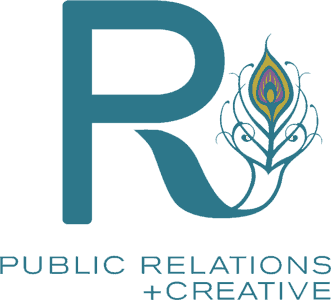
Gone are the days of painstaking research to build accurate media lists, of phone pitches, of basing announcements on publication dates, and of waiting, sometimes for months, to see if you were published via press clips received – gasp – by mail! As social media has evolved, it has elevated PR right along with it to the cheers of us professionals and the benefit of the brands we represent. So what is influencer marketing, and how does social media’s influence on PR benefit your brand? Here’s how.
The Purpose of PR
The Public Relations Society of America (PRSA) defines PR as “a strategic communication process that builds mutually beneficial relationships between organizations and their publics.” You do this by influencing, engaging, and building a positive relationship and/or image with your audience.
Many confuse PR with marketing, but it’s actually quite different. One big difference is in the amount of control you have over the narrative. In marketing, you pay to place an ad with your message; in PR, the amount of coverage, and in essence, your brand’s perception depends solely on your access to and/or relationship with the media. Or, at least it did…before social media.
Using Social Media in PR
Essentially, social media helps us to break down the invisible wall that once stood between brands and their audience(s). It’s no longer just about going through the media with your story and praying for the best. Social media can help you to meet your brand’s PR goals by:
- Working with Influencers – These people give your brand a voice in a way neither you nor a media story could do on its own. Influencers have huge followings that you can tap into to promote your products or services and help with reputation management.
- Social Listening – PR was more reactionary in the past, but with social media, you can keep your finger on the pulse of public perception of your brand. This enables you to proactively respond to any issues that might come up and better understand your customers in general.
- Using Your Platform(s) – Again, it’s about controlling the narrative as best you can. Social media can help you do that much more swiftly, if not immediately when necessary. Today’s news cycle is 24/7, so getting your story on social platforms can also influence the angle of media coverage as journalists do their share of social listening as well.
- Creating Real Relationships – Social media allows you to engage your audience directly with content that’s not only newsworthy but also important to their needs and where they are in the sales cycle. Think blogs, how-to guides, FAQs, and even related content that ties with your brand that could help them.
- Improving Media Relations– Social media is an integral part of PR now, but it doesn’t replace the importance of good media relationships. It can make that easier, however. Most journalists are active on social media and publicly list their handles. You can use this to learn more about their beats, when they need resources, how they prefer to work, as well as their personal and professional interests. Depending on your industry, you could include bloggers in this as well!
All this being said, be careful with a do-it-yourself PR strategy. It’s certainly easy enough to post, but appropriate messaging, knowing how to work with influencers and media, social listening savvy, and the ability to effectively measure results is key.
R team has extensive PR experience, and we’d love to help your brand. See how by clicking HERE to schedule a FREE Discovery Call Today!

